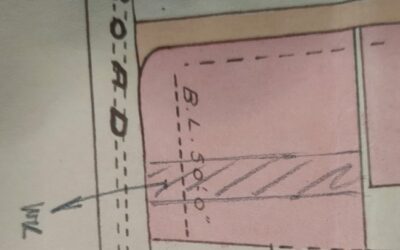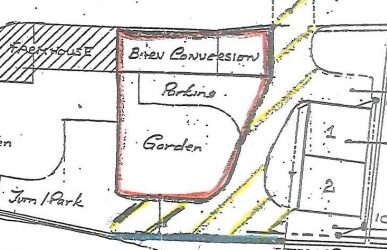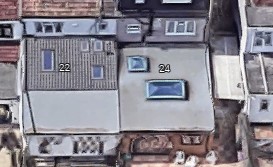The need for a boundary survey
There can be very few instances where the proper consideration of boundary location does not require a good boundary survey as an essential component of this procedure. Rarely can the matter of a boundary issue be fully explored without a full and comprehensive survey of all existing relevant physical features.
Measured survey plan accuracy
The boundary survey plan must, of course, be accurate because this will form a key part of the assessment by the boundary surveyor. An inaccurate survey and resultant plan would be likely to have very significant implications for the further consideration of the correct legal boundary location. Generally, accuracy in the region of about +/- 30mm should be achievable for measurements to physical features; this accuracy is very often, in fact, beyond the accuracy of the feature being measured, especially if it is fence which, if old and leaning, might have very much more variation of its line than this.
Who should do the site survey?
Whoever undertakes the site survey must, of course, be sufficiently skilled to do this. Generally, this type of surveying is probably still mostly carried out with the use of a digital total station but otherwise possibly with a laser scanner or GPS device. With regards to who does this, mostly, this type of surveying is carried out by a land surveyor but some surveyors of other disciplines, especially if they have had a specific professional need, have obtained the necessary skill and experience with the use of the surveying equipment.
However, accuracy of the measure is assumed to be ‘as read’ and is only ‘half of the story’ …. notwithstanding the details of the person physically undertaking the site survey, if this person is not the boundary surveyor, it must be noted that it is absolutely essential that the surveyor carrying out the measured survey on site is fully aware of what needs to be surveyed. There can be so many physical features which might be relevant to the exploration of the boundary issue … possibly precise measurement to the face of the trunks of trees or a hedge, possibly some remains of an old fence or some variation of the age of a fence or a wall, maybe the location of drainage inspection chamber, an electricity pole or a change of the ground surface. Many such features, or possibly subtle changes of the characteristics of features, are not things which, as standard, would not be measured by a land surveyor and many (such as the stump of an old fence post for example) would probably not even be noticed.
What if the boundary surveyor does not do the site measure?
Bearing all of this in mind, and the fact that sometimes what needs to be measured might develop over a period of 2 or 3 hours or more of the surveyor actually being there measuring and exploring, we consider that, ideally, the boundary surveyor would do their own measuring. This is not a necessity of course and it is not unusual for the site measure to be carried out for the boundary surveyor separately by a specialist land surveyor and, if so, probably the site measure will be accurate and correct. Less certain, and needing special attention by the boundary surveyor, is to give the land surveyor sufficient and clear direction. The surveyor undertaking the site measured survey must have fully and comprehensively briefed by the boundary surveyor as to what measurements are needed. We have had experience of situations where inadequacies of the site measured survey carried out on behalf of the boundary surveyor have led to significant failings and shortcomings of the conclusions subsequently possible by the boundary surveyor.
How Smith Marston can assist
Philip Smith deals with boundary dispute matters for Smith Marston. Philip has well over 20 years of experience of boundary disputes and, although qualified as a building surveyor rather than land surveyor, over this period, he has obtained the necessary skill and experience such that all of the boundary site measuring is carried out personally by him using a digital total station. Philip has been accepted by the RICS as an Accredited Expert Witness for boundary disputes. This service is offered nationally from our various regional offices.




